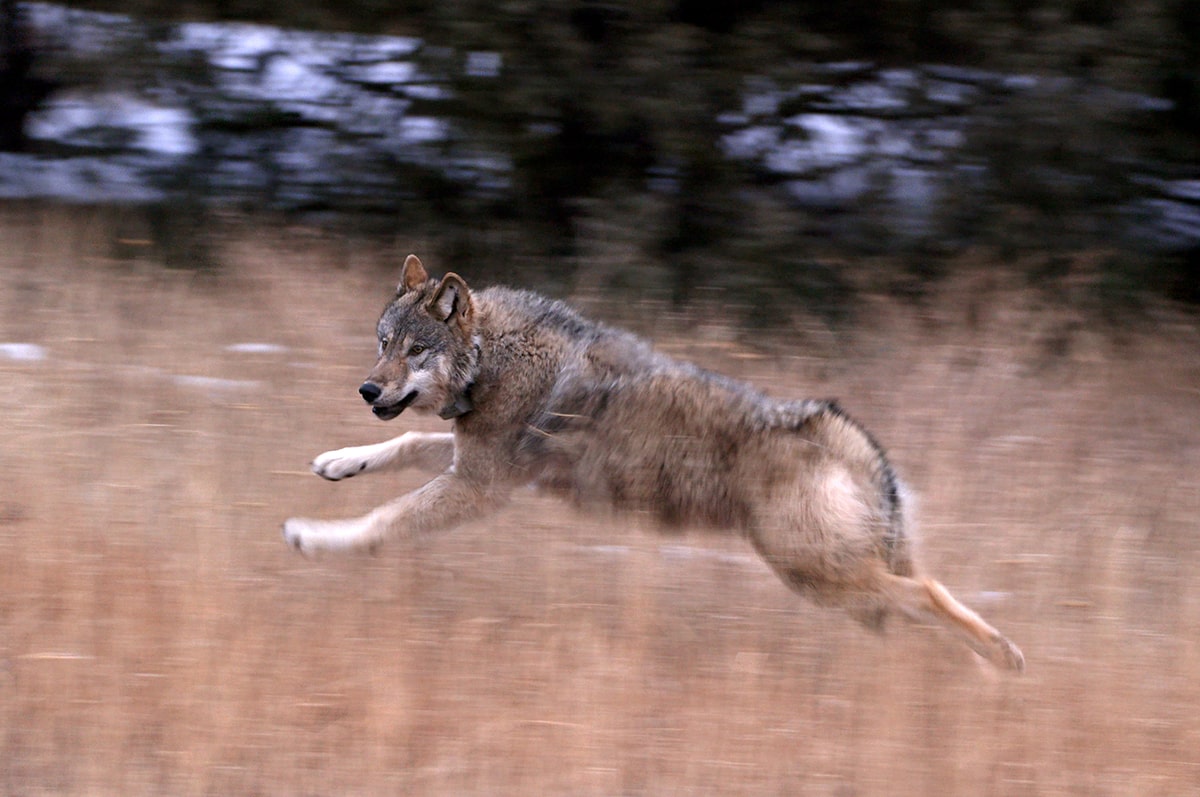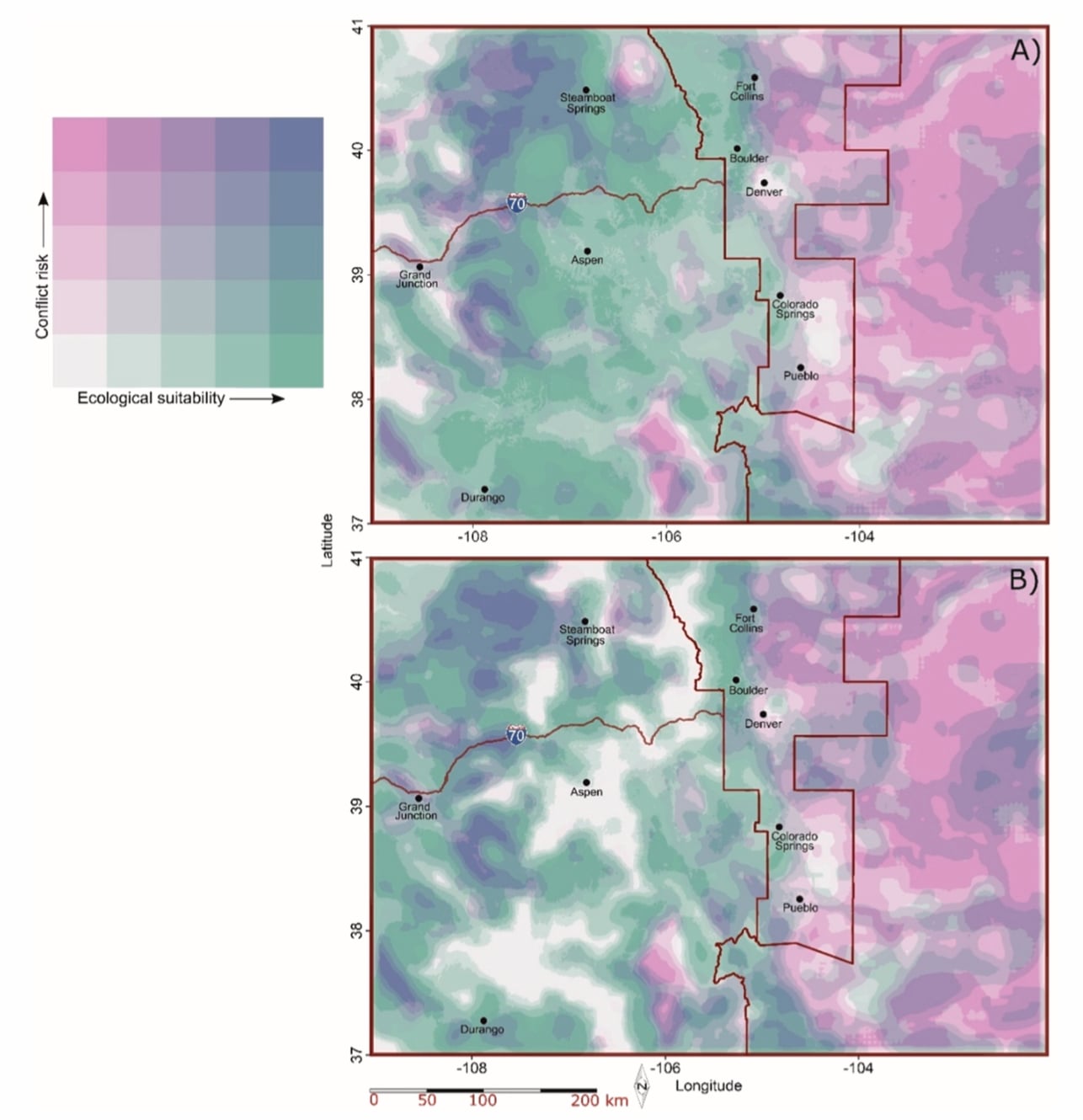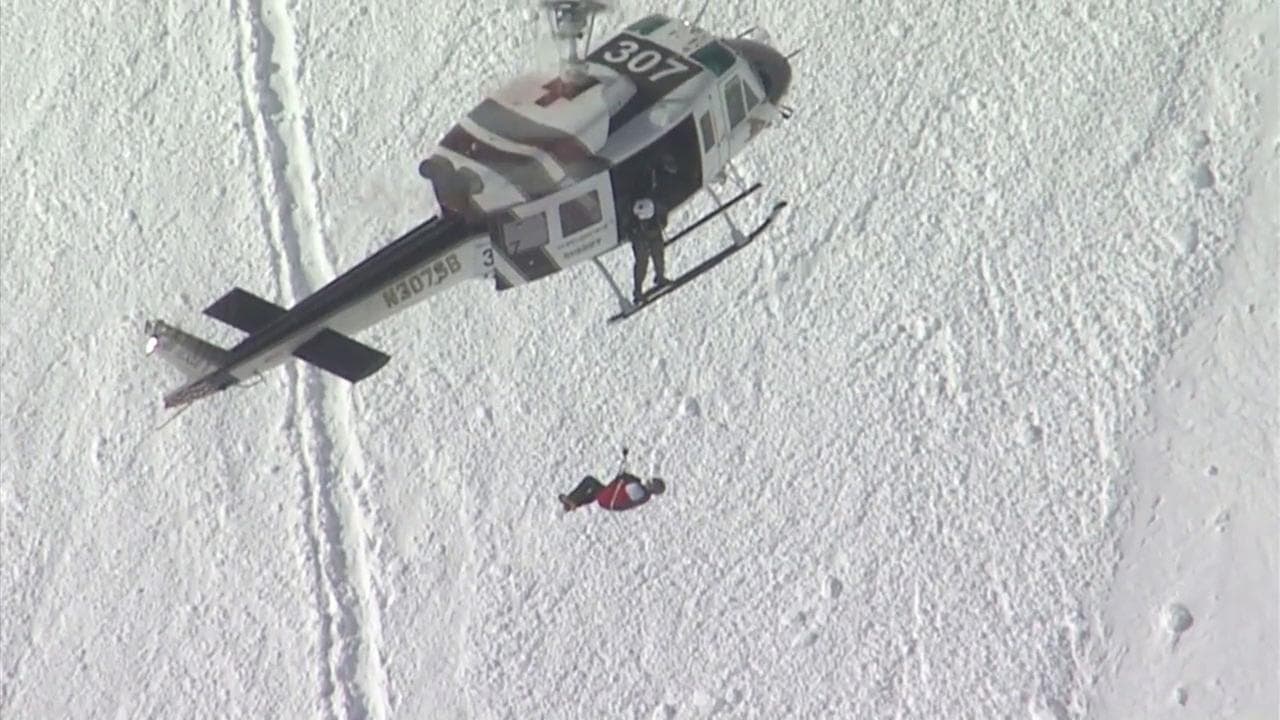
Colorado Parks and Wildlife (‘CPW’) released another five wolves this week, after an initial release of five wolves on Monday, December 18, 2023. This takes the total of wolves released on the western slope of Colorado to ten wolves. A total of four males and six females were released, most of which were juveniles/yearlings.
CPW experts had captured wolves in Oregon and evaluated them to determine if they were fit for relocation to Colorado. Criteria for release included the age, sex, health, and body condition of each animal. Each gray wolf was weighed and measured. Staff collected genetic material – tissue and blood samples – before fitting each with a GPS satellite collar for tracking upon release by CPW staff. Then, the wolves were given vaccines and were placed in crates, and flown to Colorado for release back into the wild.
CPW has now released a total of 10 gray wolves onto state-owned public land in Summit and Grand counties, continuing the agency’s efforts to create a permanent, self-sustaining gray wolf population in Colorado. This total completes the agreement with Oregon for the December 2023 – March 2024 capture season to provide up to 10 wolves to Colorado. No further releases are planned this calendar year.
The five wolves released most recently were:
- 2306-OR: Yearling female, gray color, 66 lbs., Noregaard Pack
- 2308-OR: Yearling female, gray color, 74 lbs., Noregaard Pack
- 2309-OR: Adult male, gray color, 104 lbs., Wenaha Pack
- 2310-OR: Yearling female, gray color, 71 lbs., Desolation
- 2312-OR: Yearling female, gray color, 76 lbs., No Pack
Colorado Parks and Wildlife biologists were careful to select yearling and adult wolves that are mature enough to hunt prey on their own. Wolves are typically born in April of each year, and a wolf that was born in April of 2022 would be almost 20 months old now. That animal is called a yearling. That animal is capable of hunting on its own. Yearlings were candidates for translocation and the majority of the animals CPW translocated were yearlings (previously termed “juvenile”).

CPW will continue working to source additional animals until up to 15 wolves have been reintroduced in Colorado by mid-March 2024. Ultimately, CPW plans to recover and maintain a viable, self-sustaining wolf population in Colorado while balancing the need to manage interactions between wolves, people, and livestock.
“We are grateful to the Oregon Department of Fish and Wildlife for working with our agency in providing these 10 wolves. We have now completed our work in Oregon by capturing those gray wolves per our agreement with ODFW. We will continue our plan to release animals for the next few seasons in order to ensure that wolves don’t just survive but thrive in Colorado as they did a century ago.”
— Jeff Davis Director CPW
A guide has been released by CPW to aid farmers and ranchers with protecting their herds as the wolf population in Colorado grows. Farmers in Colorado are concerned about the impact of the wolf reintroduction. The Colorado Cattlemen’s Association and The Gunnison County Stockgrowers’ Association tried to stop or delay the reintroduction by means of a lawsuit, but last week federal Judge Regina Rodriguez denied the request from Colorado’s cattle industry to delay the release of the gray wolves. While the lawsuit will continue, the judge’s ruling allowed CPW to proceed with the release this week.





